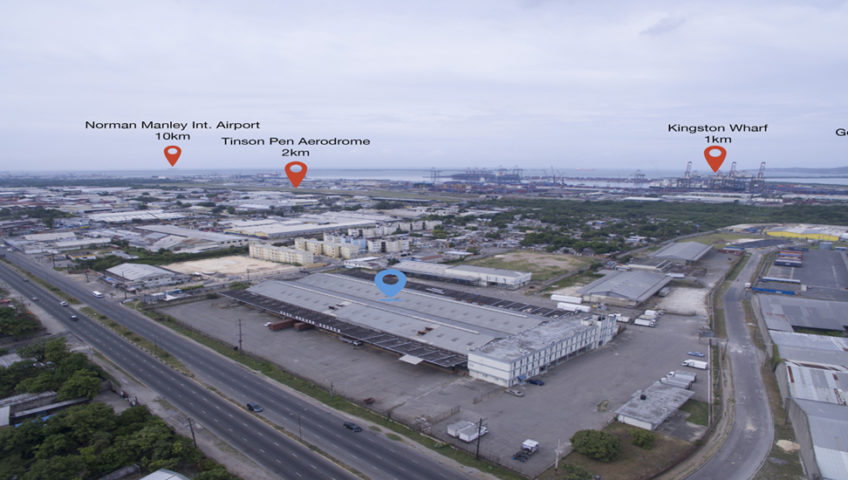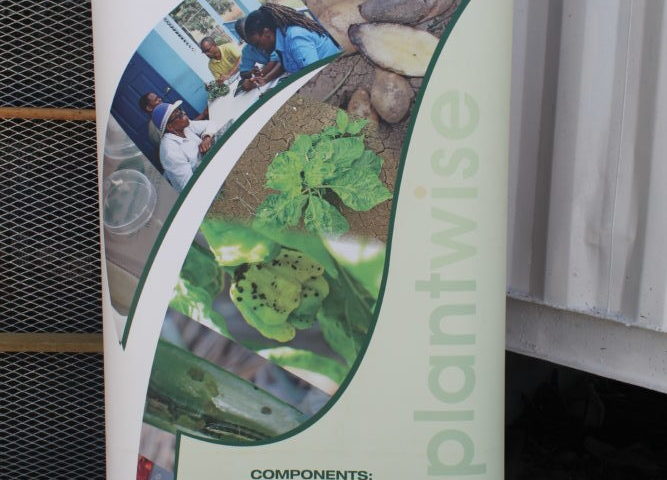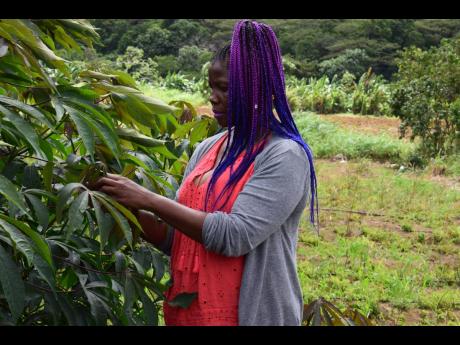
IT’S A project in its nascent stage and Cabinet is yet to approve its structure, but the Ministry of Industry, Commerce, Agriculture and Fisheries (MICAF) plans to tie down deals with private sector companies on a logistical network for farm produce.
As proposed by MICAF Minister Audley Shaw, the Government is hoping to leverage the packaging and distribution strength of companies such as GraceKennedy and Caribbean Producers Jamaica to increase throughput for the average farmer.
The plan, as it currently stands, includes privatisation and modernisation of the nine-acre Agricultural Marketing Corporation complex in Kingston under the public-private partnership model, as one of a network of six agro-processing centres to be spread across Jamaica.
The other five centres proposed, as noted by Shaw in his contribution to the Sectoral Debate in Parliament on Tuesday, are: GraceKennedy’s new centre at Denbigh in Clarendon; Lydford Logistics in St Ann; JamIsland Processing in Williamsfield, Manchester, operated by entrepreneurs Winston Miller and Shereen Smith; Caribbean Producers Jamaica; and Rainforest Seafoods, owned by Brian Jardim.
Group CEO for GraceKennedy, Don Wehby, confirmed talks with MICAF on the agro centre project, but has interest in more than just the mid-island operation. GraceKennedy already buys produce such as ackee, callaloo, yam, sweet potato, “and of course pepper” from small farmers.
“We are anxious to get more information on the AMC. It is a great location for agro export and processing,” Wehby said.
Acting CEO of the Agro-Invest Corporation, Michael Pryce, said more details about the centres would be released after Cabinet signs off on the project.
However, MICAF is attempting, it appears, to develop a network around logistical activity that companies already engage in, individually. GraceKennedy, CPJ and Rainforest are known to contract with local farmers for raw material for their factories.
But they and other companies engaged in similar arrangements all have the same complaint – farmers do not produce in consistent volumes and quality, and supplies are unreliable. The farmers on the other hand, complain of product rejections and inadequate compensation for their output.
Pryce noted that much of the marketing problems faced by farmers result from a repeating pattern of “short periods of over-production, followed by shortage”. He adds that agroprocessing and storage facilities can help, but cannot substitute for proper production planning that takes into consideration crop varieties and volumes, and timing of production.
Farmers want to be assured that whatever they produce will have a market, Pryce said, but due to “the absence of proper structuring of production, including scheduling, good agricultural practices, crop choices, proper infrastructure, inclusive of access roads, proper transportation, competitive prices, proper payment mechanisms, etc, this is not always a reality”, he added.
The market for farm produce has requirements in terms of when and where products are available, acceptable prices and quality, traceability and good standards of production, storage and handling, and transportation.
The network of agro-processing centres is meant to help meet those market needs, Pryce said.
They will be operated as joint venture partnerships, but consultations continue on how those arrangements will be structured, he added.
Caribbean Producers CEO David Lowe says CPJ, helped by its newly commissioned 180,000-square-foot warehouse, is “shifting towards import substitution for some of its needs and developing local vertical supply chain where possible”.
As operator of a meat-processing plant – its products include fresh pork, sausages, hamburgers and bacon – the company has linkages with local pork farmers as a source of raw material.
At the other end of the spectrum, as a distributor, CPJ also distributes tilapia for local fish farmers through food service and retail channels, including Algix fish farm in St Elizabeth, he said.
“Our recent expansion will now enable our entry into the produce business, which can support local farmers in certain crop types,” he said.
Still, he noted that CPJ needs to be convinced that the AMC/Agro Centre programme can be viable before the company commits to a partnership with the state.
“Any capital expenditure or participation in this vision will be a process of due diligence, supported by a robust business case with the supportive government policy framework in place,” Lowe said.
The AMC complex in Kingston, once privatised, will be redeveloped as a purpose-built and managed space for the private sector to do consolidation, packing, distributing, exporting and agro-processing, Pryce said.
He noted that the old AMC model was discarded from the early 1980s as being unsustainable, adding that the role it performed as a government-operated centralised marketing and distribution system was taken up by the private sector in the form of consolidators, exporters and middlemen, including “higglers”.
“I think revival of the AMC is more likely to move to a much greater role for the private sector in this process as the main players, while Government will play an enabling and facilitatory role,” Pryce added.
Source: https://www.jamaica-gleaner.com/article/business/20190426/micaf-roll-out-agro-centre-network-private-sector-help









